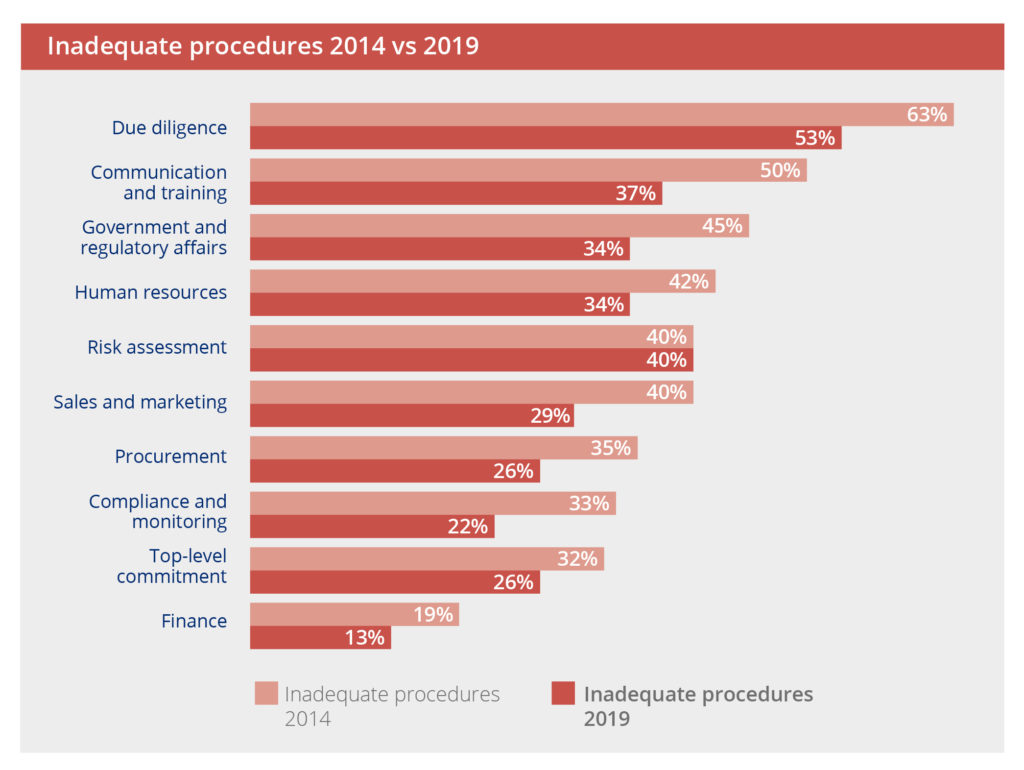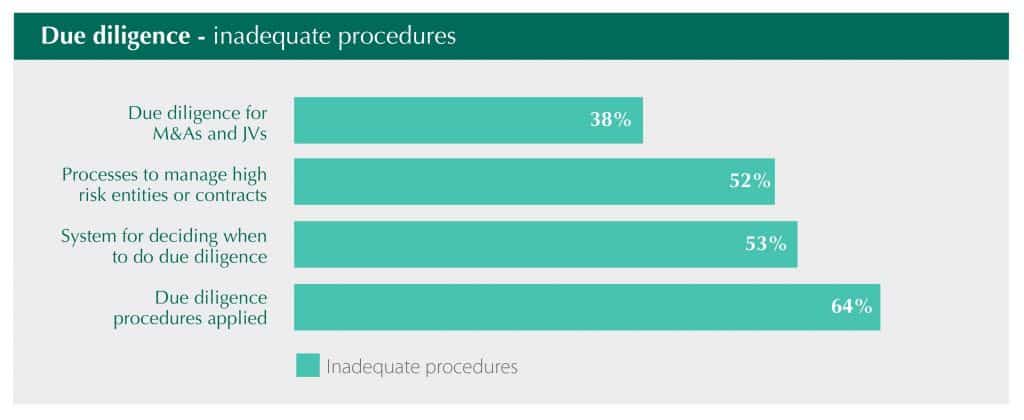Inadequate procedures to prevent corruption mean businesses still at risk of prosecution
Many businesses are still struggling to put the right procedures in place to combat corruption, according to analysis of the GoodCorporation anti-corruption benchmark published in our latest report, Combating Corruption: businesses still at risk. Download our report to read the analysis in full.

Having adequate procedures to prevent corruption is vital, not only to mitigate the risk of bribery occurring, but also to ensure an effective defence, should prosecution arise. This report analyses our evaluation of adequate procedures, highlighting the areas where businesses are succeeding and flagging where they are at risk. It looks at the full range of practices and procedures needed to be fully protected and explores the gap between top and bottom performing companies.
While 70 per cent of the anti-bribery and corruption (ABC) procedures were considered adequate, almost a third (30%) of the business practices were found to be inadequate. This is of particular concern as the least adequate practices are in areas where businesses are most at risk.
Anti-corruption due diligence procedures remain weak
Due diligence of third parties remains the least adequate of all the anti-bribery procedures assessed by GoodCorporation. Over half of all due diligence controls assessed were found to be inadequate, with particular weaknesses in checking the ethical practices of third parties such as agents, intermediaries, suppliers and distributors. Businesses were also struggling with deciding which third parties need to undergo due diligence checks.
As most of the major prosecutions have shown, businesses are more at risk from corruption by third parties and intermediaries than in any other area of their business. Developing a robust process to get this challenging area of anti-corruption due diligence right is clearly vital. Our report examines the approaches that work and cautions against the use of tools that fail to identify red flags or provide independent verification.

Failing to conduct an effective anti-bribery risk assessment places companies at risk
In the five years since GoodCorporation’s first report on the effectiveness of anti-corruption controls, there has been no improvement in anti-bribery risk assessment procedures.
Any business wishing to be properly protected from the chance of corruption occurring needs to fully understand the bribery risks to which any area of its business activities could be exposed. Our report explains why this matters analysing the common failings in implementing an effective ABC risk assessment.
The report also looks at the growing gap between top and bottom performing companies, highlighting the areas where those in the bottom quartile are most at risk.

The report contains GoodCorporation’s assessment of more than 7,000 anti-corruption procedures tested since 2011. Assessments were conducted using the GoodCorporation Framework on Bribery and Corruption which contains a list of 73 business practices that companies should follow to reduce the risk of corruption within their organisations. It is based on best practice, drawing on the six principles outlined in the UK Ministry of Justice guidance on the Bribery Act, the FCPA guidance published by the US Department of Justice and GoodCorporation’s own experience of assessing management practices.
